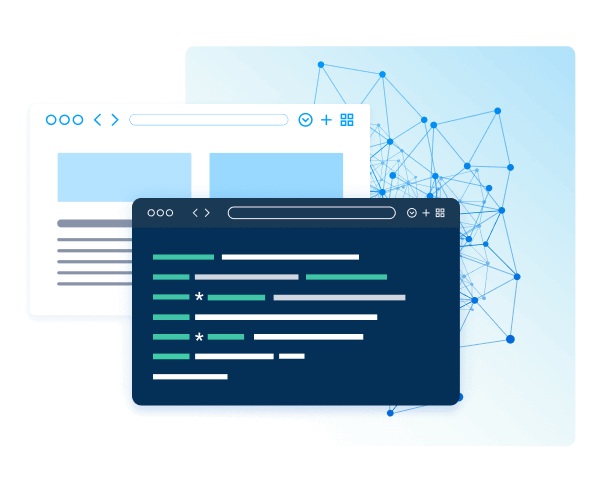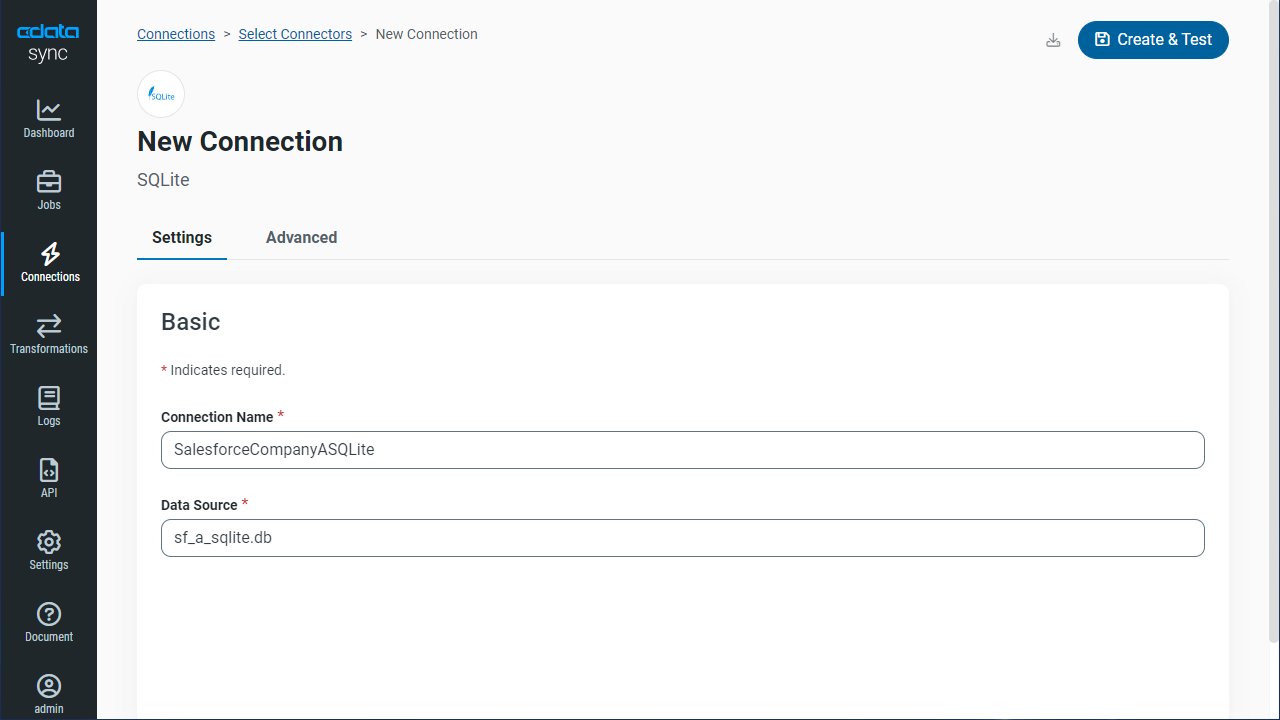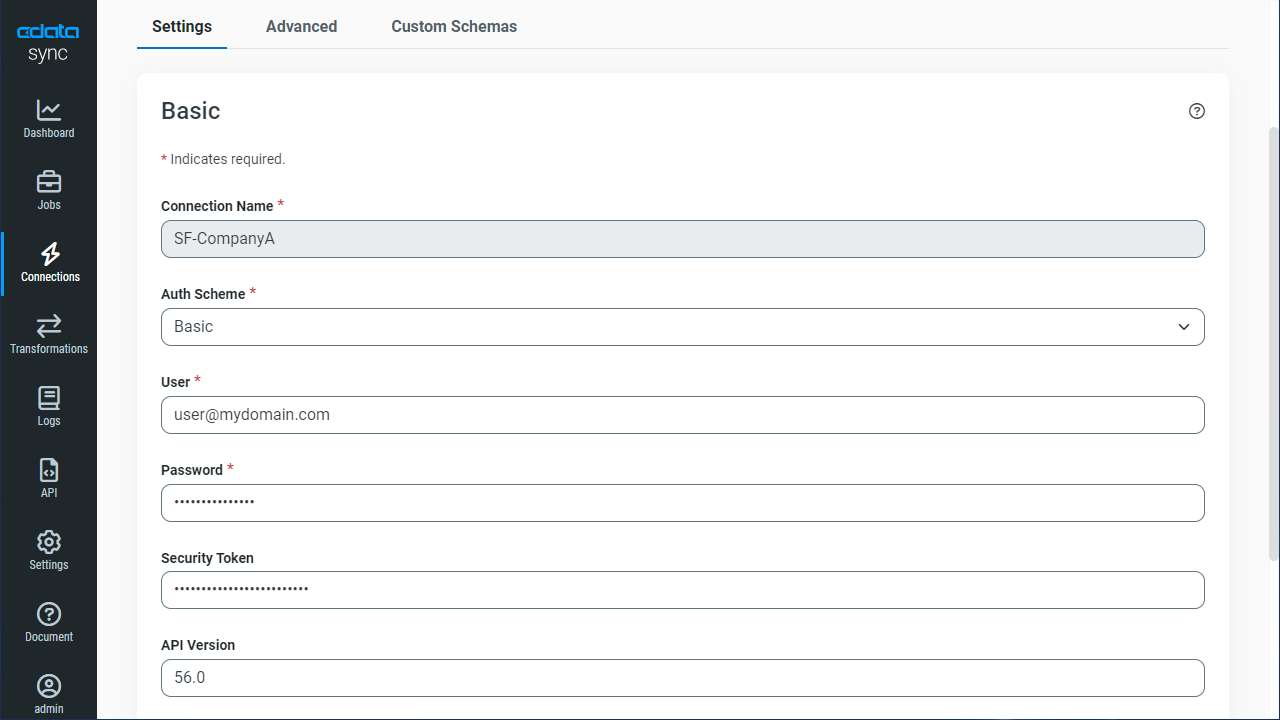Discover how a bimodal integration strategy can address the major data management challenges facing your organization today.
Get the Report →Replicate Multiple FHIR Accounts
Replicate multiple FHIR accounts to one or many databases.
CData Sync is a stand-alone application that provides solutions for a variety of replication scenarios such as replicating sandbox and production instances into your database. CData Sync includes a web-based interface that makes it easy to manage multiple FHIR connections. In this article we show how to use the web app to replicate multiple FHIR accounts to a single database.
Configure the Replication Destination
Using CData Sync, you can replicate FHIR data to any number of databases, both cloud-based and on-premises. To add a replication destination, navigate to the Connections tab.
- Click Add Connection.
- Select a destination and enter the necessary connection properties. In this article, we use SQLite.
- Enter the necessary connection properties. To replicate FHIR to a SQLite database, enter a file path in the Data Source box.
- Click Test Connection to ensure that the connection is configured properly.
![Configure a Destination connection (SQLite is shown).]()
- Click Save Changes.
Configure FHIR Connections
You can configure connections to FHIR from the Connections tab. To add a connection to one of your FHIR accounts, navigate to the Connections tab. For each FHIR account you wish to replicate, do the following:
- Click Add Connection.
- Select a source (FHIR).
- Configure the connection properties.
Set URL to the Service Base URL of the FHIR server. This is the address where the resources are defined in the FHIR server you would like to connect to. Set ConnectionType to a supported connection type. Set ContentType to the format of your documents. Set AuthScheme based on the authentication requirements for your FHIR server.
Generic, Azure-based, AWS-based, and Google-based FHIR server implementations are supported.
Sample Service Base URLs
- Generic: http://my_fhir_server/r4b/
- Azure: https://MY_AZURE_FHIR.azurehealthcareapis.com/
- AWS: https://healthlake.REGION.amazonaws.com/datastore/DATASTORE_ID/r4/
- Google: https://healthcare.googleapis.com/v1/projects/PROJECT_ID/locations/LOCATION/datasets/DATASET_ID/fhirStores/FHIR_STORE_ID/fhir/
Generic FHIR Instances
The product supports connections to custom instances of FHIR. Authentication to custom FHIR servers is handled via OAuth (read more about OAuth in the Help documentation. Before you can connect to custom FHIR instances, you must set ConnectionType to Generic.
![Configure a Source connection (Salesforce is shown).]()
- Click Connect to ensure that the connection is configured properly.
- Click Save Changes.
Configure Queries for Each FHIR Instance
CData Sync enables you to control replication with a point-and-click interface and with SQL queries. To configure a replication, navigate to the Jobs tab and click Add Job. Select the Source and Destination for your replication.
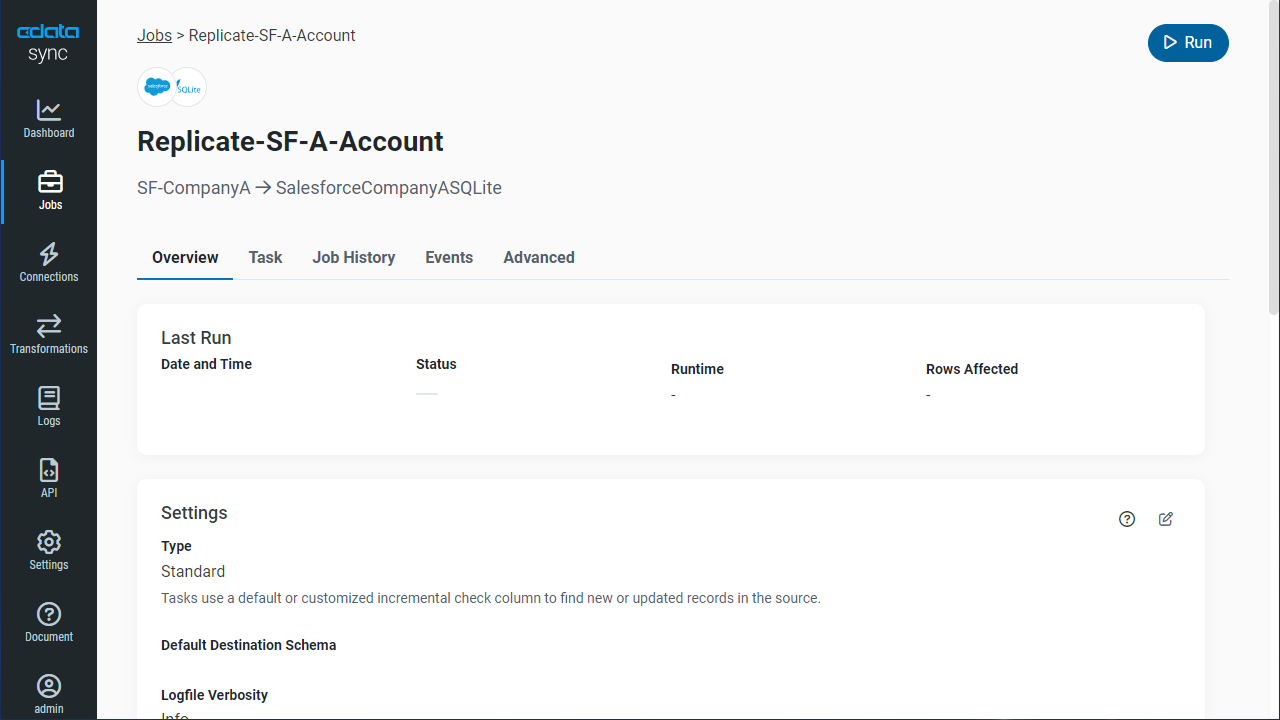
Replicate Entire Tables
To replicate an entire table, click Add Tables in the Tables section, choose the table(s) you wish to replicate, and click Add Selected Tables.
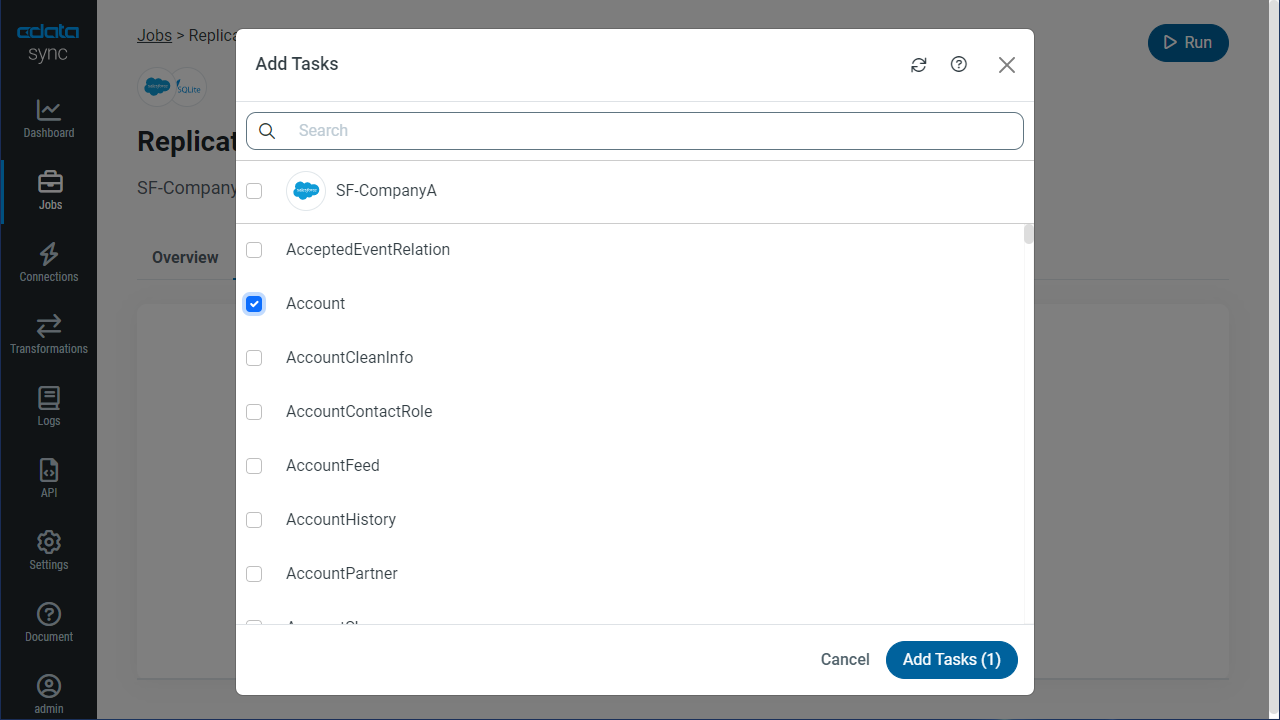
Customize Your Replication
You can use a SQL query to customize your replication. The REPLICATE statement is a high-level command that caches and maintains a table in your database. You can define any SELECT query supported by the FHIR API. To customize your replication, click Add Custom Query in the Tables section and define the Query Statement.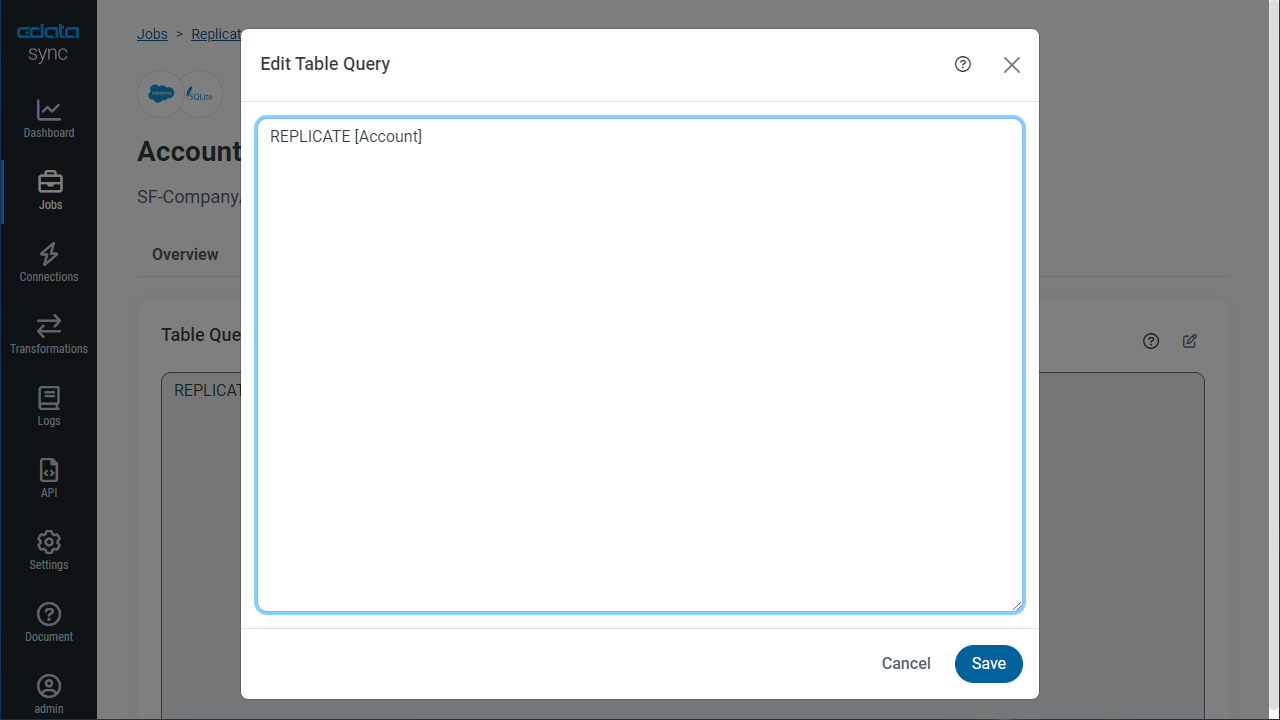
The statement below caches and incrementally updates a table of FHIR data:
REPLICATE Patient;
You can specify a file containing the replication queries you want to use to update a particular database. Separate replication statements with semicolons. The following options are useful if you are replicating multiple FHIR accounts into the same database:
-
Use a different table prefix in the REPLICATE SELECT statement:
REPLICATE PROD_Patient SELECT * FROM Patient; -
Alternatively, use a different schema:
REPLICATE PROD.Patient SELECT * FROM Patient;
Schedule Your Replication
In the Schedule section, you can schedule a job to run automatically, configuring the job to run after specified intervals ranging from once every 10 minutes to once every month.
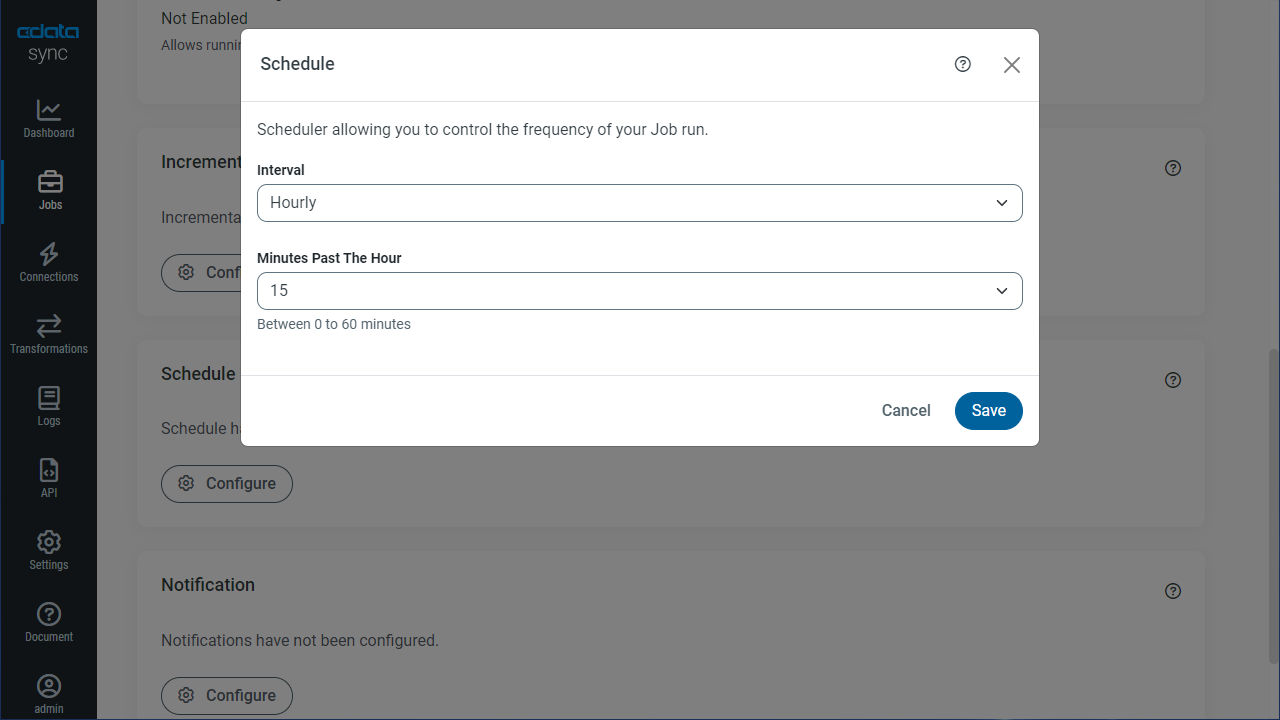
Once you have configured the replication job, click Save Changes. You can configure any number of jobs to manage the replication of the data from your different FHIR accounts.

